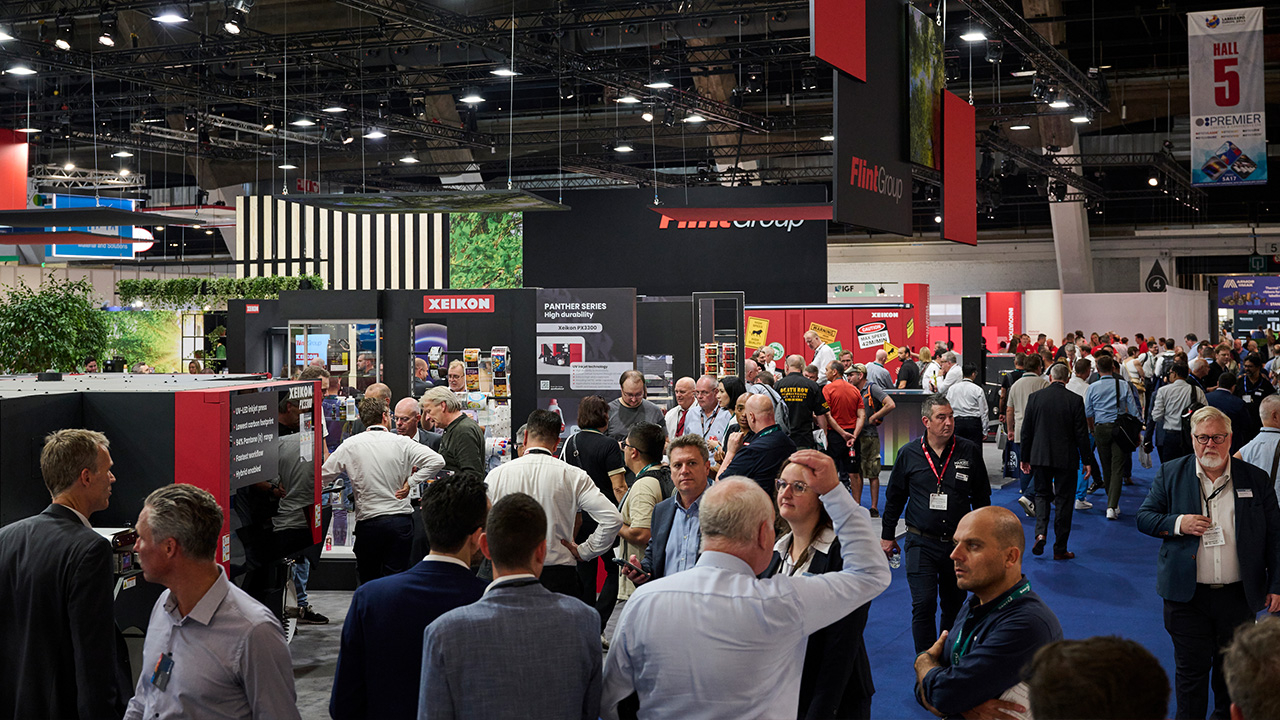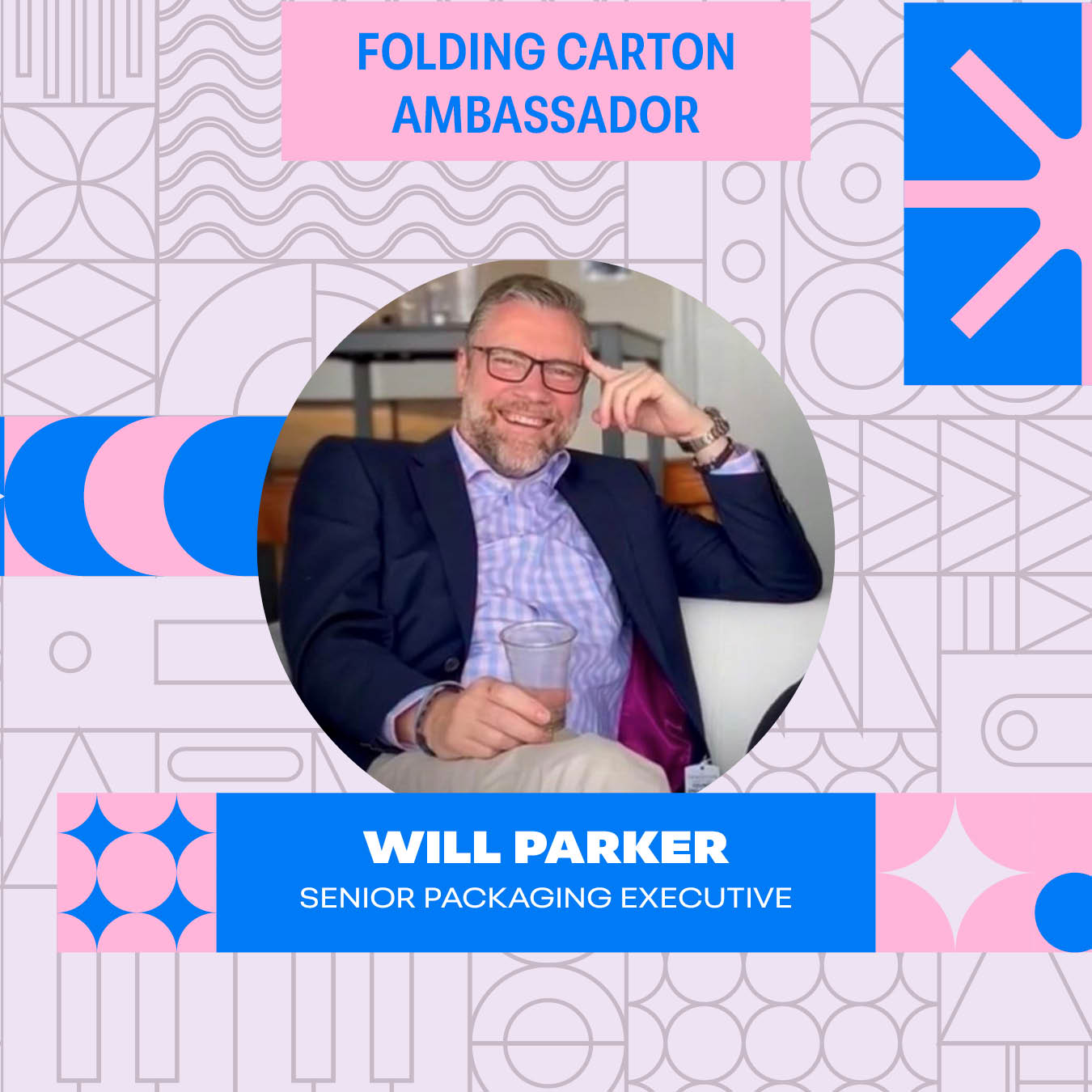Beyond labels: why folding cartons are the natural next step for converters
By Will Parker, senior packaging executive and Labelexpo ambassador.

Labelexpo has long been the bellwether for change in our industry. From the digital disruption of narrow web to the transformation of mid-web and flexible packaging; the show has always spotlighted where we’re headed. This year in Barcelona, that evolution turns towards folding cartons, but in truth, this isn’t a new chapter. It’s a continuation of a story already well underway.

Across Europe and the UK, the move toward fiber-first packaging is accelerating. Brands, governments and consumers are converging on a clear goal: eliminate problematic plastics, reduce carbon emissions and drive circularity. Folding cartons, especially those produced in-line, are a powerful answer.
In-line cartons: not new — just newly relevant
Despite all the buzz, in-line carton production isn’t a new concept. For over 15 years, food-to-go packaging, particularly in the UK, has quietly evolved using in-line flexo platforms to produce folded, glued and barrier-coated or lined fiberboard trays and wraps.
Likewise, the beauty and personal care sectors have long relied on short-run, embellished carton production using hybrid workflows to create rigid boxes, sleeves and gift packaging often produced in-line with hot foil, embossing and die-cutting in a single pass.
What’s new is the urgency of the conversation. Sustainability regulation, SKU proliferation and rising energy costs have brought these capabilities to the forefront for a much wider audience, especially label converters looking to diversify.
A fiber-first Europe
From the EU Packaging and Packaging Waste Regulation (PPWR) to the UK’s Plastic Packaging Tax and Extended Producer Responsibility schemes, the policy backdrop across Europe is clear: fiber-based packaging is favored.
It’s not just legislation; consumers are increasingly driving the shift. Gen Z and millennial shoppers expect recyclable, plastic-free and mono-material formats, not only for environmental reasons but for brand credibility. This is reshaping packaging decisions in food, pharma, cosmetics and e-commerce. As brands pivot, converters who can deliver recyclable cartons quickly and efficiently stand to gain a competitive edge.
Why label converters are uniquely positioned
Label converters already have the DNA required to succeed in the folding carton space: short-run agility, in-line print expertise, embellishment workflows and increasingly, automation and MIS integration.
Platforms from Canon Edale, Gallus, Mps, Omet, Mark Andy and Bobst; suddenly the leap into cartons becomes less of a jump and more of a step sideways.
These in-line systems allow converters to print, embellish, crease, die-cut and strip cartons in a single pass, offering unmatched efficiency in short-to-mid runs. Whether it’s food-to-go trays, pharma cartons or luxury sleeves; in-line workflows reduce changeovers, cut waste and simplify logistics.
Why in-line makes ecological and economic sense
Traditional sheet-fed carton production, especially for short or variant-heavy runs, often involves multiple stages, machines, operators and logistics, all of which increase power usage, CO₂ output, and material waste.
In contrast, in-line production offers:
- Lower power consumption per unit
- Less overproduction (ideal for SKUs with expiry or version control)
- Streamlined handling and fewer process steps
- Faster time-to-market with reduced carbon footprint
This aligns perfectly with brand ESG targets, especially in regulated or premium sectors like pharmaceuticals, beauty, nutraceuticals and boutique food and drink where the packaging is part of the product’s identity.
Where the growth is happening
Markets with high SKU complexity and demand for speed are ripe for in-line carton production:
- Pharma and nutraceuticals: Versioning, serialisation and compliance requirements
- Beauty and skincare: Embellishment-heavy, seasonal packaging
- Pet Care and wellness: Sustainable, tactile formats
- Food-to-Go and QSR: Rapid turnaround, fiber-based, grease-resistant coatings
- D2C and E-Commerce: Printed secondary packaging, giftable formats, low MOQs
The key across all is high complexity and low volume; a sweet spot where label-style workflows meet carton performance.
Are the legacy sheet-fed players looking to cross over...?
It’s not just label converters leaning in. Increasingly, sheet-fed carton printers are exploring in-line technology as a strategic complement to their existing offset capabilities. By shifting short-run or high-complexity jobs to in-line platforms, they can free up litho capacity for longer runs, reduce bottlenecks in embellishment and die-cutting and offer faster lead times with fewer touchpoints. In-line doesn’t replace sheet-fed; it optimizes the overall workflow, allowing converters to deliver a broader, more agile supply chain to their customers.
With brands demanding greater responsiveness, versioning and sustainability credentials, this hybrid production approach positions sheet-fed houses to grow share, reduce waste and improve margin without compromising quality.
Labelexpo 2025: where the sectors converge
Barcelona isn’t just a change of venue as much as it marks a strategic pivot. The inclusion of folding carton technology this year underscores a market that’s shifting beneath our feet. It’s not labels or cartons; it’s labels and cartons, often printed on the same press.
Stay up to date
Subscribe to the free Label News newsletter and receive the latest content every week. We'll never share your email address.

